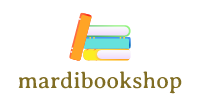In today’s fast-paced digital world, where screens dominate our daily lives, the simple act of reading a book may seem like a relic of the past. However, books remain as vital as ever, offering a depth of knowledge, emotional connection, and personal growth that technology often fails to replicate. While the internet provides instant access to information, the immersive and reflective nature of reading books continues to hold a unique and irreplaceable value. As we navigate an age of constant connectivity, it’s worth exploring why books matter more than ever.
The Unique Benefits of Reading Books
One of the most profound advantages of reading is its impact on cognitive development. Books challenge the brain to engage in deep thinking, improve memory retention, and foster critical analysis. Unlike the passive consumption of digital content, reading requires active participation. Readers must visualize scenes, understand complex ideas, and connect disparate pieces of information, all of which enhance mental agility. Regular reading has even been linked to a reduced risk of cognitive decline in older adults.
Beyond the intellectual, books have a powerful emotional influence. Through storytelling, readers are transported into the lives of others, gaining a deeper understanding of different perspectives and cultures. This practice fosters empathy, allowing individuals to relate to experiences far removed from their own. Whether it’s the struggles of a fictional character or the memoir of a historical figure, books enable readers to connect on a human level, promoting compassion and social awareness.
Books also serve as mirrors and windows—reflecting the reader’s own experiences while offering glimpses into entirely new worlds. This dual role not only strengthens personal identity but also broadens horizons, encouraging readers to embrace diversity and appreciate the richness of human experience. In a world often divided by differences, books act as bridges, fostering unity through shared stories.
Lastly, the act of reading improves focus and discipline. Unlike the fragmented attention encouraged by scrolling through social media, reading demands sustained concentration. This habit trains the mind to focus on one task at a time, a skill that translates to other areas of life and work.
Books as an Escape from Digital Overload
In an age of constant notifications, endless feeds, and digital distractions, reading provides a much-needed respite. Books offer an escape from the overwhelming barrage of information, allowing readers to disconnect and recharge. Immersing oneself in a book creates a sense of calm, reducing stress and promoting mindfulness. Studies have shown that reading can lower heart rates and decrease stress levels more effectively than other leisure activities.
The tactile experience of holding a physical book further enhances this sense of escape. Unlike digital screens, which emit blue light and can strain the eyes, printed pages offer a soothing alternative that promotes relaxation. This physical connection to a book—the texture of the paper, the weight of the volume—grounds the reader in the present moment, creating a more intimate and focused experience.
Reading offline also benefits mental health by breaking the cycle of digital fatigue. Constant screen use has been linked to anxiety, poor sleep, and reduced attention spans. In contrast, the deliberate pace of reading a book encourages reflection and uninterrupted thought, helping readers regain a sense of balance in their lives. By carving out time to read, individuals can create a sanctuary of quiet in an otherwise noisy world.
Moreover, books offer a unique sense of escapism, transporting readers to different times, places, and realities. This imaginative journey provides a temporary reprieve from daily stresses, allowing readers to recharge their minds and spirits. Whether it’s a thrilling adventure or a contemplative memoir, the pages of a book can serve as a refuge from the demands of modern life.
Fostering Creativity and Inspiration Through Reading
Books have long been recognized as catalysts for creativity and innovation. By presenting new ideas, perspectives, and narratives, they ignite the imagination and inspire readers to think outside the box. Unlike visual media, which often provides fully realized images, books rely on the reader’s mind to construct worlds, characters, and scenarios. This active engagement stimulates creative thought, encouraging readers to envision possibilities beyond their immediate reality.
- History is filled with examples of literature inspiring groundbreaking advancements. Mary Shelley’s “Frankenstein” sparked discussions about the ethical implications of science, influencing fields like bioethics and artificial intelligence. Similarly, Aldous Huxley’s “Brave New World” and George Orwell’s “1984” continue to shape societal conversations about technology, privacy, and freedom. Books don’t just reflect society—they challenge it, driving progress and innovation.
- For individuals, reading can act as a wellspring of motivation. Stories of triumph, resilience, and discovery encourage readers to pursue their dreams and overcome challenges. Whether it’s a self-help guide offering practical advice or a novel showcasing a protagonist’s journey, books often provide the inspiration needed to tackle life’s obstacles.
- Books also connect readers with the creative minds of authors. Through the written word, readers engage in a silent dialogue with writers, absorbing their insights and interpretations of the world. This exchange of ideas fosters intellectual curiosity and a lifelong love of learning, paving the way for continuous growth and exploration.
The Role of Books in Preserving Culture and Knowledge
Books are not just vessels of stories; they are guardians of culture, history, and collective human wisdom. Through literature, societies preserve their traditions, values, and experiences, ensuring they are passed down to future generations. Whether it’s ancient texts like “The Epic of Gilgamesh” or modern classics like “To Kill a Mockingbird,” books serve as time capsules, capturing the essence of their eras.
In addition to preserving history, books play a vital role in fostering cultural exchange. Translations of literary works allow readers to experience the perspectives and traditions of different cultures, breaking down barriers and promoting understanding. This global sharing of stories enriches the human experience, highlighting both our differences and shared humanity.
Books also act as tools for education, equipping individuals with the knowledge needed to navigate and contribute to society. From scientific discoveries to philosophical treatises, literature has been the cornerstone of human advancement. Libraries, both physical and digital, stand as testaments to the enduring power of books as repositories of learning.
Finally, books offer a way to combat the fleeting nature of digital content. In an era where information is often ephemeral, books provide a lasting record of ideas and achievements. Their tangible presence ensures that knowledge endures, safeguarding it from the impermanence of the digital age.
Finally, we recommend reading our article, where we talked about tips and ideas.
FAQ
Books offer unique cognitive, emotional, and cultural benefits that digital media often lacks, providing a deeper, more immersive experience.
Reading allows individuals to disconnect from digital distractions, promoting mindfulness and relaxation, which can lower stress levels.
Absolutely. By engaging the imagination and presenting new ideas, books stimulate creative thinking and encourage innovation.

